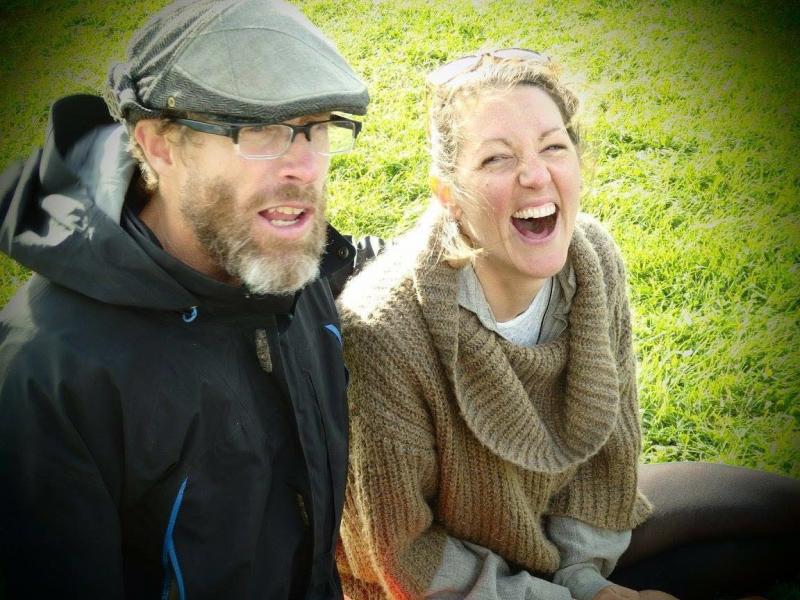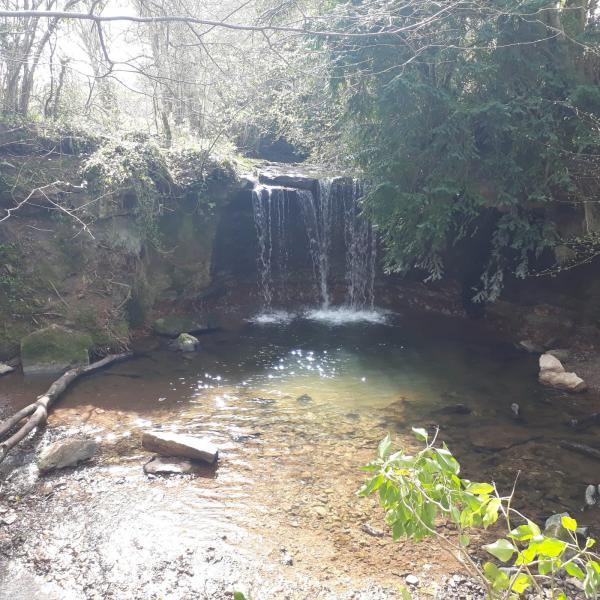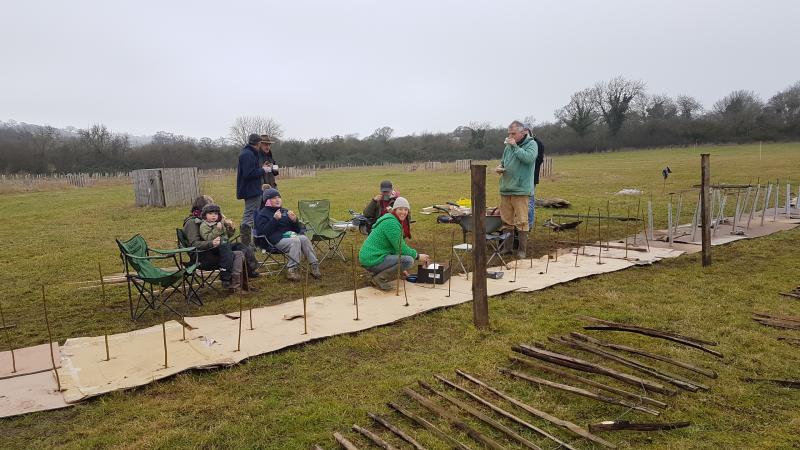Ben Moss, land steward and activist01 Jun 2020
If people can't connect with nature, we can't solve the climate and ecological crises. We know that time spent in nature has far-reaching mental and physical benefits but sitting by a tree in a city park creates a very different experience from sitting in an ancient forest. Albert Einstein once said "Look deep into nature, and then you will understand everything better". Right now how deeply are we able to look into nature to better understand everything going on in our world?
Transformative beginnings
I was born and bred in Islington. My mum was adamant that my siblings and I wouldn't grow up entirely as city rats. Precious weekends and summer holidays were spent in a tiny semi-detached in Suffolk. I fell in love with riding my bicycle, and watching rabbits grazing wild in an orchard nearby. I was transfixed by nature, beholding life as I had not done before. It had a transformative effect on me I still recall to this day.
Nearly 20 years on, nature's transformative powers worked on me as a lost university graduate. A degree provided no confidence in understanding how to direct myself to counter the global ills I had spent three years illuminating. I retreated from the city and the depressed anonymity I felt, to work on an organic farm, again with a bicycle. The owls, rivers, runner beans, moon, potatoes, compost, stars and fire, among many other things - as well as some wonderful people and their ways of life - righted my direction.
Cooperate to mend
Setting up Bristol Wood Recycling Project in 2004 provided an opportunity to mend some of the broken parts of the economic system that I railed against. Rescuing timber from going to waste, while working with volunteers from social backgrounds that were hitherto labels to me, transforming waste into value, was - and remains - a thoroughly satisfying and worthwhile enterprise. Yet wild nature, and our relationship with it, which had proved so transformative for me was absent from Bristol Wood Recycling Project's remit.
A gem in the greenbelt
In 2014 the opportunity emerged to fulfil many long-held ambitions. Using an inheritance I was able to purchase 19 acres of land in the Chew Valley, in Bristol's greenbelt. Isolated, south-facing, two-fields of species-rich grassland, bounded with ancient hedgerows and a stream with a magical waterfall, the land enchants those who visit. Winding country lanes lead there, while a public right of way brings people from the nearest village. It's 12 miles from the city centre – but feels many more times than that.
Yet we find ourselves caught in the idiosyncratic realities of the greenbelt. The Chew Valley feels ecologically sparse. Livestock grazing, arable farming, and horses vie for the land. Estates, (and the farming subsidies that come with them), are held as family wealth. Bristol Airport looms large and grotesque developments somehow slip the planning net. Public rights of way crisscross the landscape, yet most of the land is simply inaccessible. Private property trumps public interest.
I feel the true meaning of the green belt has been lost. It now seems to be a rarefied place of monocultural farming and homogenous cultural stereotypes of wealthy retirees and commuters. As a place accessible for city folk to find leisure and recreation - with all the wonderful benefits being in nature can bring - seems estranged. The fact there are no buses from town to here (only the other direction, commuter-style) exemplifies this.
A rewilding incubator
Discovering Friends of the Earth's recent campaign to "Wildly reimagine the greenbelt" fires great excitement in my partner SarahPoppy and me. We want to act decisively and positively to set another agenda for what the green belt is for, and who can access it. We want to change the game.
We've been bringing people to this land to share in its wonder and slowly start enlivening the landscape. Together we have planted over 400 metres of hedgerow, over 1,500 native broadleaf trees and over 100 orchard varieties of fruits and nuts - from apples to mulberries and hazelnuts to hickories. We're concentrating on trees that have a multitude of uses in a regenerative, polycultural way. As we let the trees grow we have seen nature proliferate too. Recent sightings of a juvenile hare coursing through the grass and a stoat bobbing in scrub lifts the spirits. At times we have gathered with community to mark the passing of the seasons.
It is our intention to make this space more accessible, particularly for those from the city, and to help enhance biodiversity, grow food and build community. Taking the social value of the co-operative endeavour I first experienced in the wood recycling project – the shared intention, meals and conversations, sense of identity and purpose, the graft and satisfaction of completing the task, and taking a step closer to "making things better" – by placing them in nature.
Encountering nature is transformative, as expected. It's visceral as well as intellectual. The more that's put in here, the more we get back. This is a truism. Yet only the experience can reveal what this truth means - as Einstein understood.
Look deep into nature
The need for connection to nature - to be in a reciprocal relationship - is greater than ever. We need to rapidly plant vast numbers of trees throughout our landscapes and let biodiversity thrive.
Our bodies, minds and souls need nature to nurture us. Yet for generations we've been separated from land physically as well as philosophically and both have suffered. Right now we need a co-operative effort so monumental, so gargantuan, that only our wildest imaginings can help us achieve it.
Our wish is to provide space on this land to cultivate and manifest this wild reimagining of the greenbelt, where we can look deep into nature, understand everything better and act on it.
We hope this project will inspire others. We know that all will benefit from it.
Ben @ThatWoodBloke; SarahPoppy @poppyjacshon
If you’d like to talk to Friends of the Earth about how you can help support our ideas on rewilding, please get in touch.
We’d love to hear from you.




